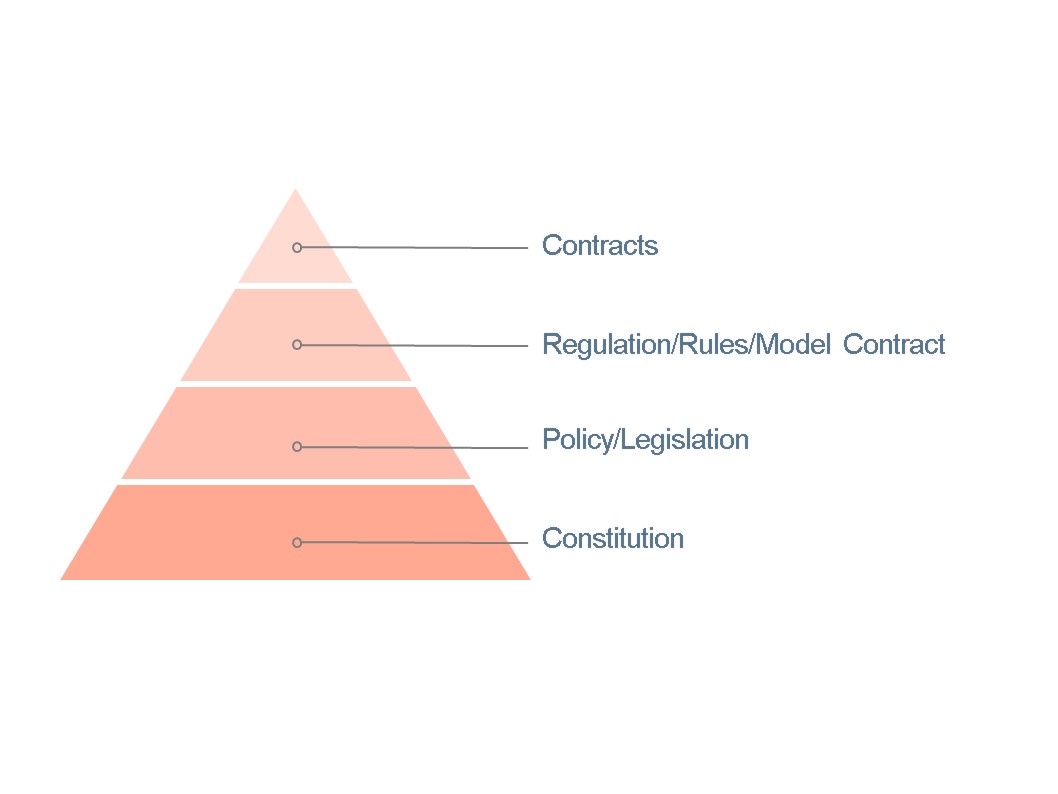
Primer: Legal Framework
The rules, responsibilities and institutions governing the behavior of actors are central to optimal resource management.
KEY MESSAGES
- The rules, rights and obligations of companies, governments, and citizens are set forth in a system of legal documents called a legal framework.
- Documents in the legal framework include a country’s constitution, legislation, policy, regulations and contracts.
- Laws and policy are supposed to have more authority than a contract. However, contracts can also be written to explicitly override the laws and regulations.
- Legal documents that cover broad principles, like constitutions, are generally more difficult to change. More specific documents, like laws and contracts, can often be more easily amended.
- Countries with detailed laws and policies often have more stable and predictable legal frameworks than those that leave more aspects open for negotiation in individual contracts.
- In some countries, national courts resolve scenarios where legal documents conflict or parties have different interpretations about what the documents mean. However, extractive industry contracts often stipulate that any disagreement go to international arbitration.

Legal Hierarchy - Legal Framework